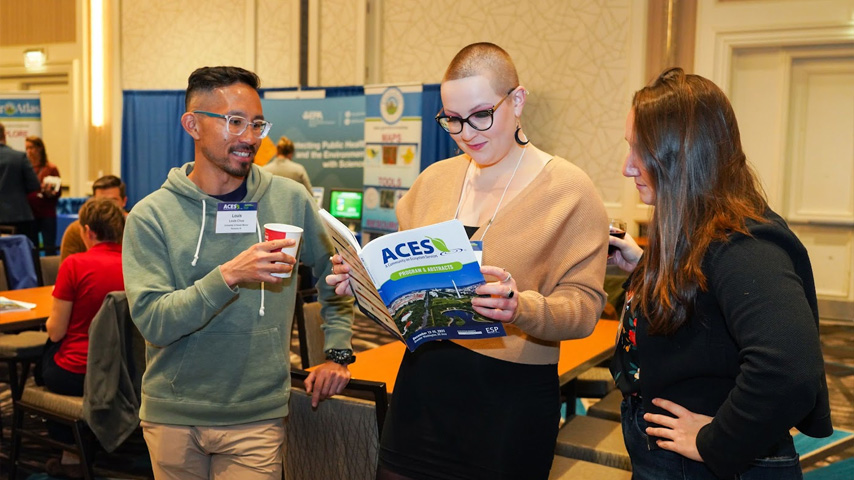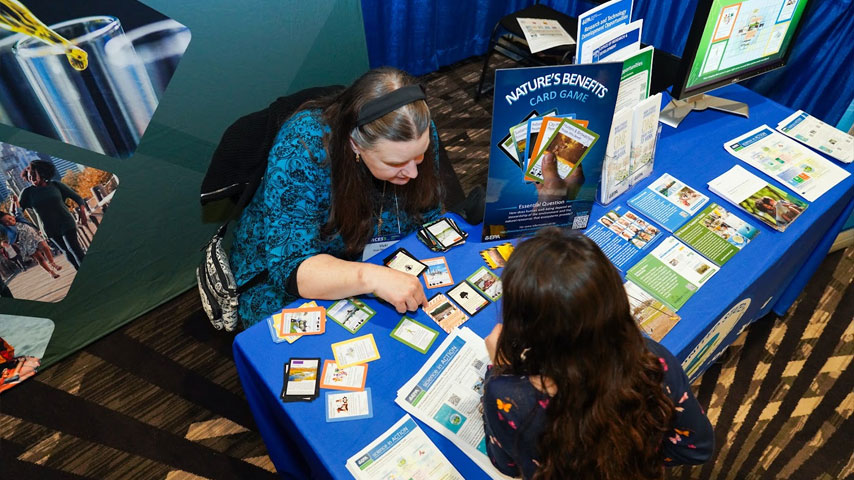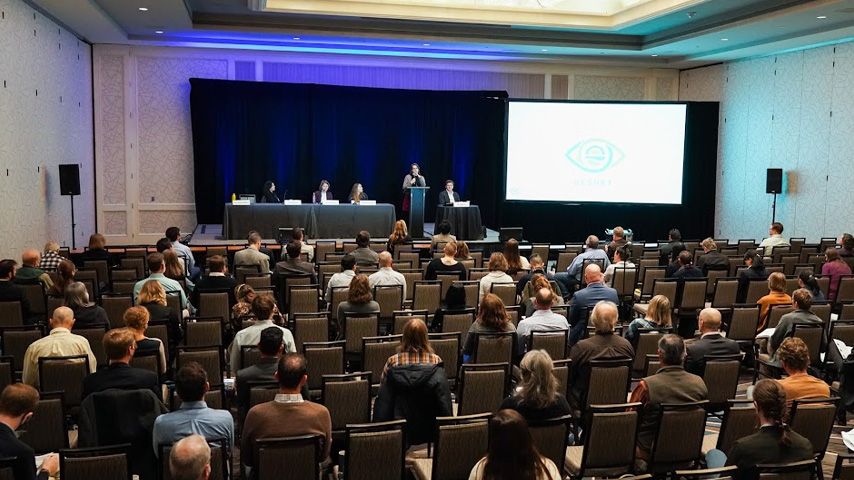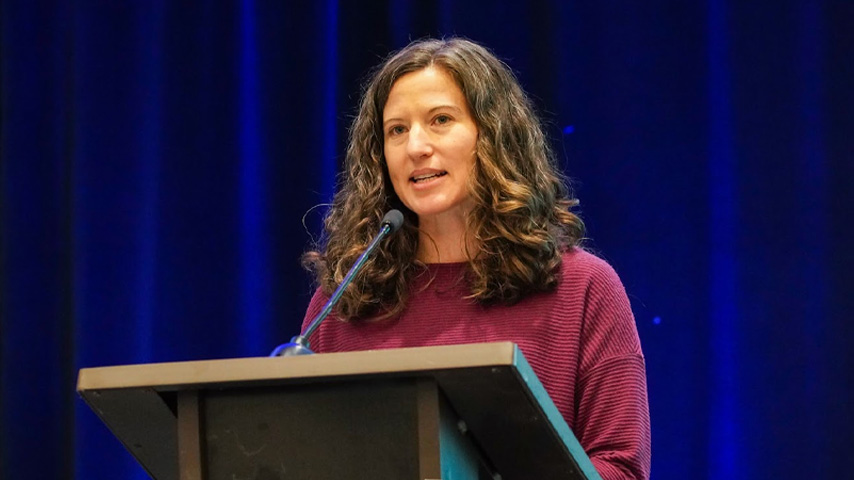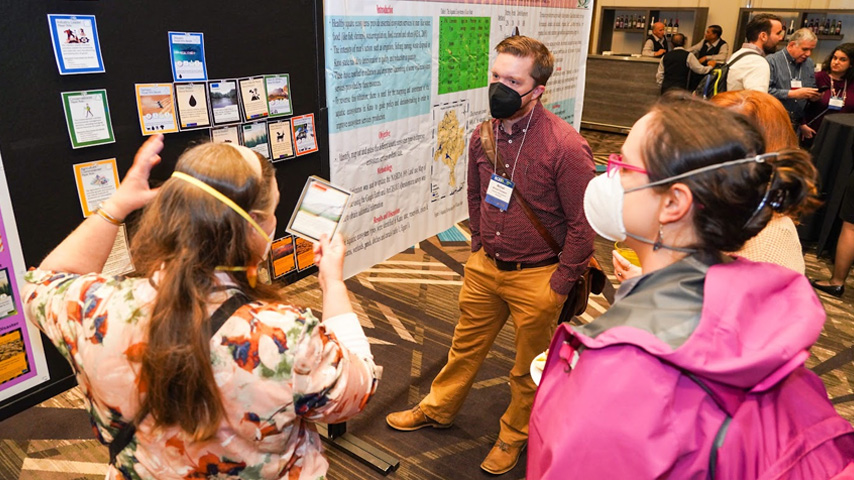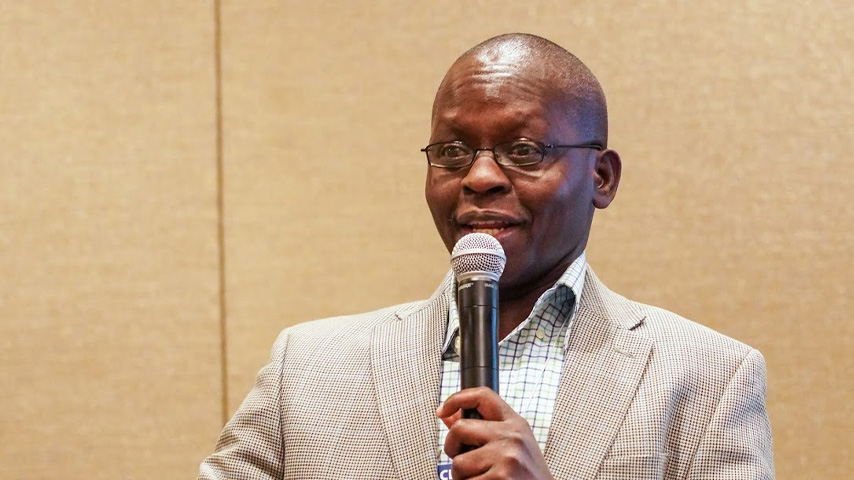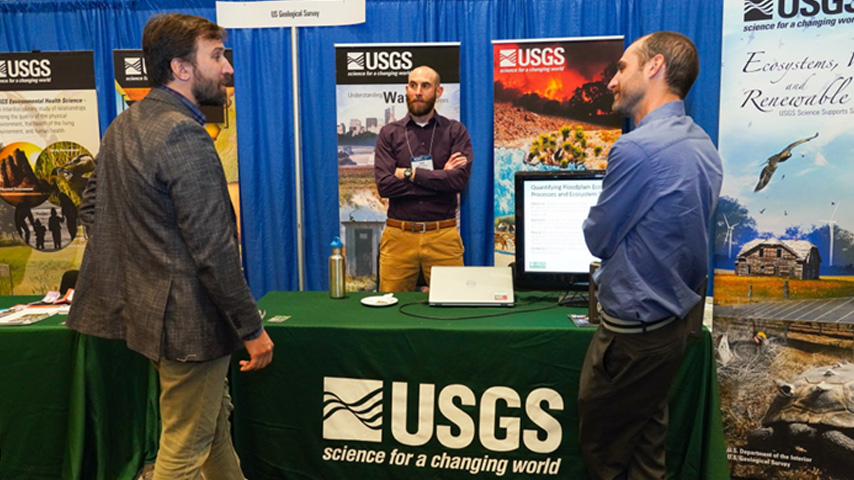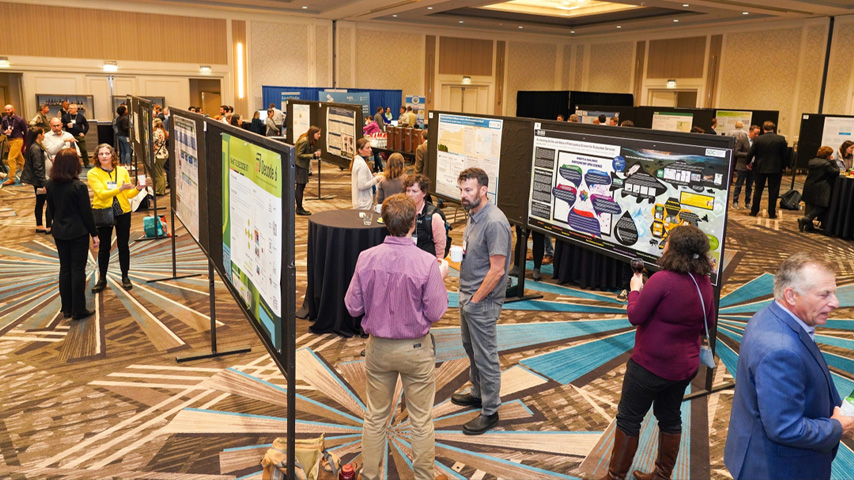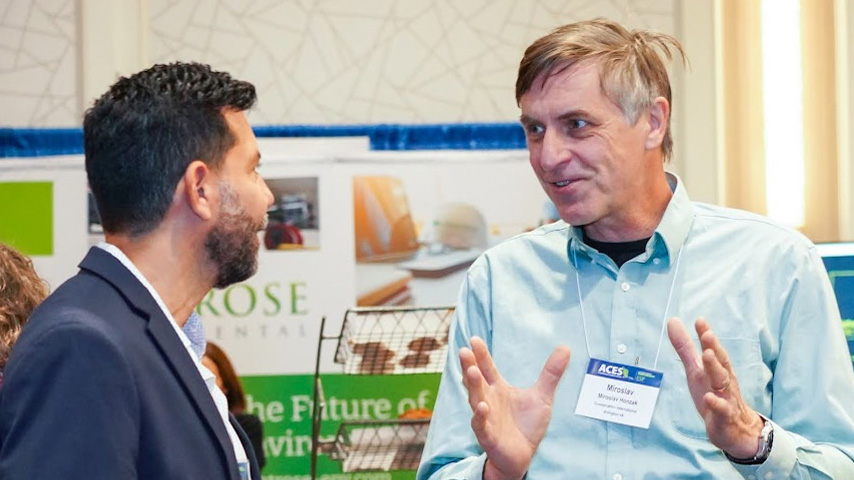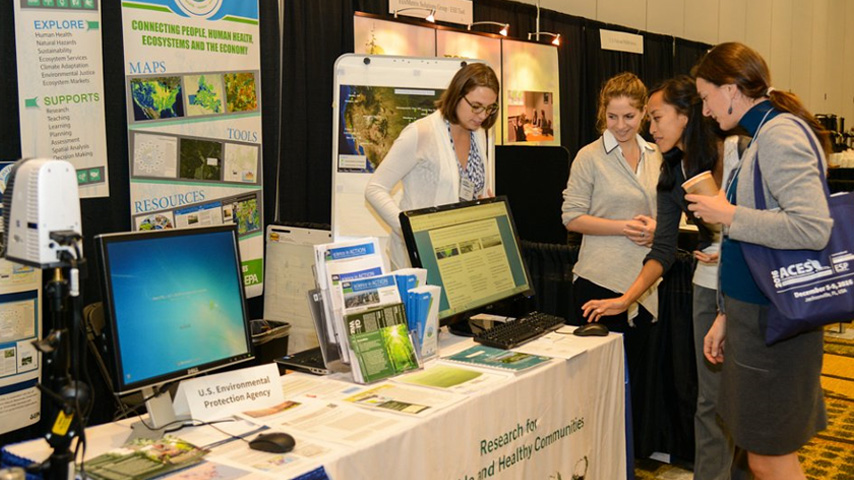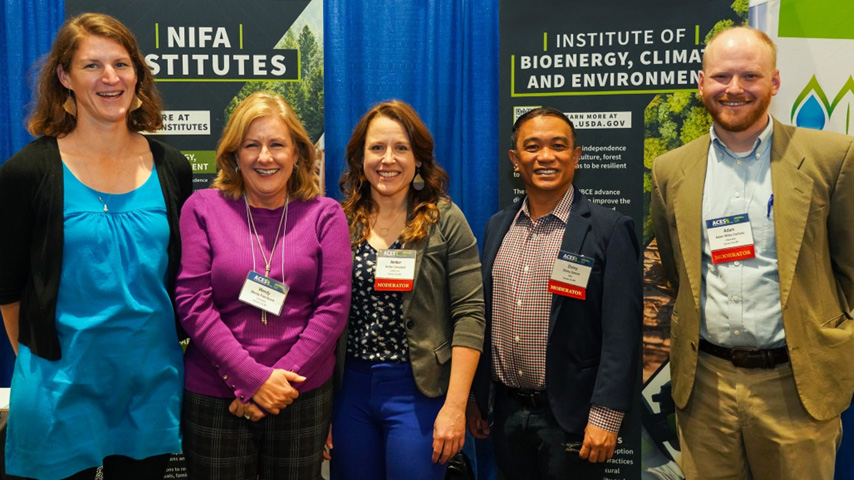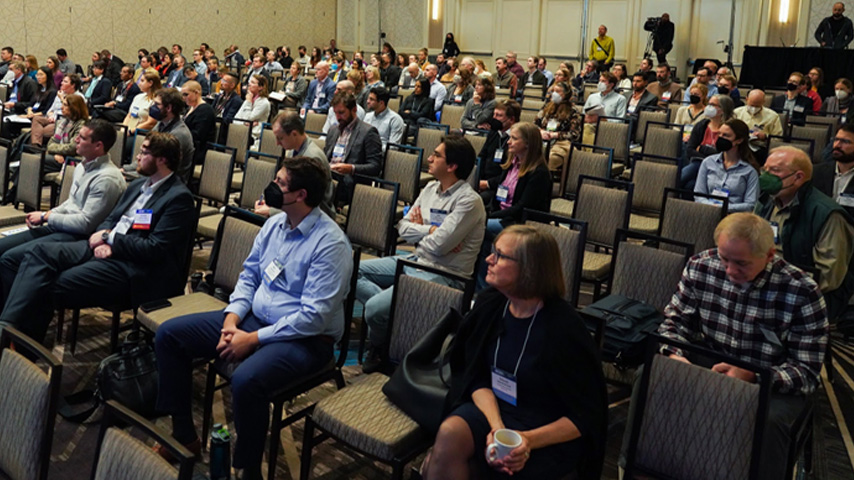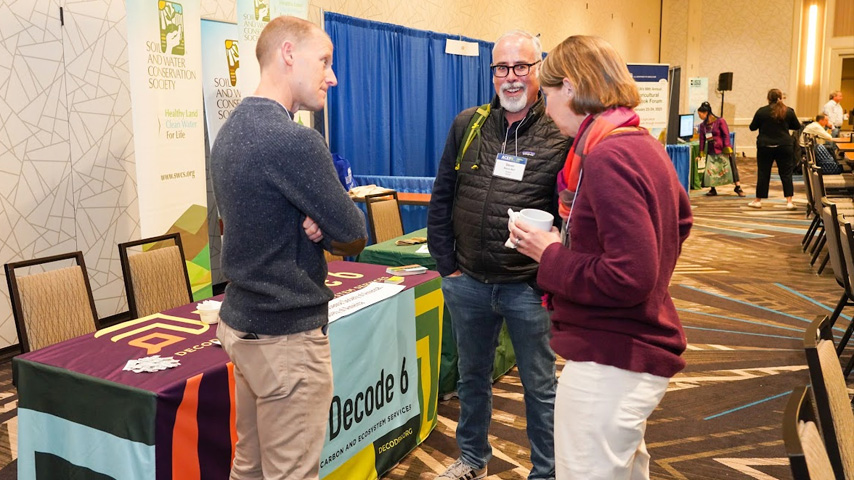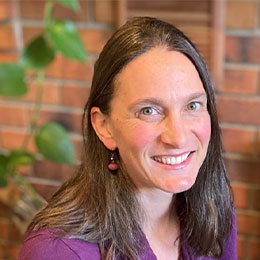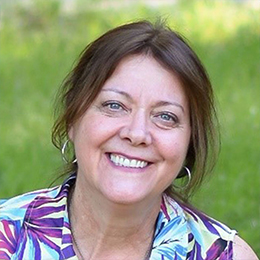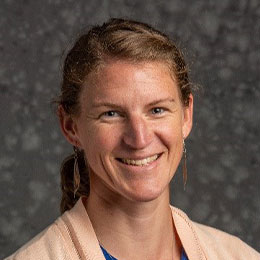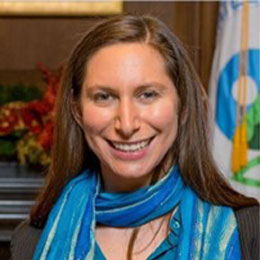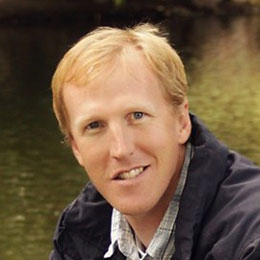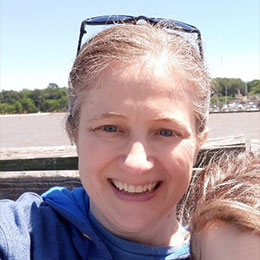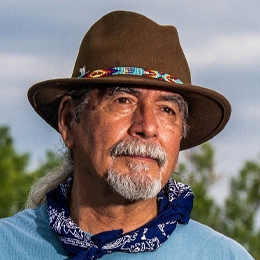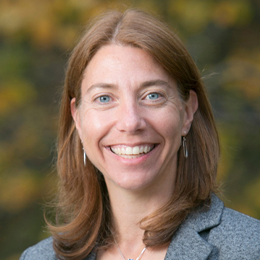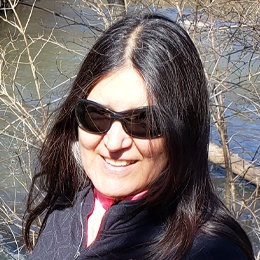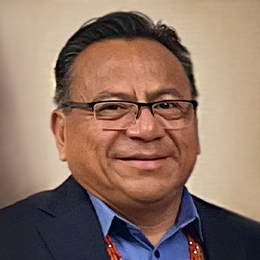Speaker Presentations
The University of Florida does not assume responsibility for content, views or opinions expressed in these independent presentations, and authors are solely responsible for ensuring their presentation materials do not infringe on third party copyrights. Any questions or comments should be directed to the presenting author. If you suspect a presentation of copyright infringement, please contact us immediately. Speaker presentations are linked throughout the agenda as PDFs. If a presentation is not included for a particular speaker, we did not receive permission to post their file(s).
Printable Version of Agenda (PDF)
| Tuesday, December 10, 2024 | ||||
| Opening Plenary Session ACES Co-Chairs and Session Moderators: Ms. Shonte Jenkins, U.S. Geological Survey and Marc Rossell Dr. Marc Russell, U.S. Environmental Protection Agency Speakers: Mr. Richard Begay, Tribal Historic Preservation Officer Navajo Nation, Heritage and Historic Preservation Department, Window Rock, AZ Dr. Sonny Ramaswamy, President Northwest Commission on Colleges and Universities, Redmond, WA |
||||
| Concurrent Sessions | ||||
| Session 1 | Session 2 | Session 3 | Session 4 | Session 5 |
| Incorporating Ecosystem Services in Federal Decision-Making | A Comprehensive Look at Ecosystem Service Valuation in Sanctuaries and the Great Lakes | Investing and Putting Nature to Work | Bringing it All Together: How Do We Establish Systems of Ecosystem Services for Ongoing Monitoring? | Graduate Training in Ecosystem Services and Related Sciences |
| Emily Pindilli Executive Office of the President, Office of Science & Technology |
Danielle Schwarzmann NOAA Office of National Marine Sanctuaries |
Ben Sherrouse U.S. Geological Survey |
Gretchen Greene Greene Economics LLC |
Ray Ali USDA-NIFA |
| Panelists: Christian Crowley, DOI Kate Quigley, NOAA Travis Warziniack, FS This panel will focus on ecosystem services used by federal agencies in decision-making. Topics include the OMB’s Ecosystem Services Guidance and the National Science and Technology Council Subcommittee on the Frontiers of Benefit-Cost Analysis. Agency representatives will provide perspective on the state of ecosystem services research and use in regulatory decisions. |
Panelists: Robert C. Burns, WVU Charles Goodhue, ERG Lou Nadeau, ERG Jeff Gray, NOAA TBNMS This panel will focus on methods and outcomes used in ecosystem service valuation to inform the decision making process. Panelist discussion will heavily draw from work from the National Oceanic and Atmospheric Administration and the National Marine Sanctuary Foundation that is supporting the Sanctuary designation process. |
Ken Cousins Valuing the Co-Benefits of Source Water Protection: Modeling the Effects of Forest Management on Ecosystem Services |
Bea Covington Positioning State Lands for the Energy Transition |
Anita Antoninka Training Culturally Responsive Leaders for Managing Resilient Forests |
| Glen Delaney The Value of Restoring Forested Wetlands: The Avahoula Climate Mitigation Project |
Juliet Sinisterra Nature-Positive Urban Development and Regenerative Growth |
Yoko Kusunose A Nationally Recognized Master’s Program for Extension Training in Agricultural Economics |
||
| Season Martin Building Resilience to Climate Change in the Colorado River Basin |
Michele Arquette-Palermo Model to Mishap: Making a Case for Protection of Water Quality in Southwest Florida |
Zakiya Leggett Forestry of the Future: Improving Student Readiness and Workforce Participation of Underrepresented Minority Populations in Forest Resources |
||
| Laila Racevskis Cost-Effectiveness of Natural Resource-Based Adaptation Strategies in the Florida Keys |
Sabine Postma Accounting for Ecosystem Services via Sustainability Frameworks in Canada |
Krishnaswamy Jayachandran Graduate Training in Agroecology at Florida International University |
||
| Mark Ducey Silvicultural Principles for Northern Forest Restoration Based on Financial Productivity and Avian Functional Diversity |
Susan Burke Environmental Accounting and Measuring Change and Improvement |
Discussion | ||
| Concurrent Sessions | ||||
| Session 6 | Session 7 | Session 8 | Session 9 | Session 10 |
| Progress on Bipartisan Infrastructure Law and Inflation Reduction Act Implementation | The North American Great Lakes: Powering the Economic Engine in the Region | Investing in Equity and Agriculture: USDA-Funded Collaborations at Hispanic-Serving Institutions | Recent Scientific Advances in Forest Ecosystem Management for Numerous Ecosystem Services | Tools and Approaches Measurements |
| Marc Russell US EPA |
Rajendra Poudel International Joint Commission / Great Lakes Regional Office |
Irma Lawrence USDA-NIFA |
Diomides (Diomy) Zamora USDA-NIFA |
Alanna Shapiro Florida Atlantic University |
| Dana Coelho Inflation Reduction Act Investments in Urban and Community Forestry |
Panelists: Roy Brouwer, University of Waterloo John Livernois, University of Guelph Salim Hayder, Division of Fisheries and Oceans Kate Quigley, NOAA The panel session will focus on sharing best practices, lessons learned, and concerted efforts that the United States and Canada are working on to fulfill the Great Lakes water Quality Agreement (GLWQA). This panel session offers insights on how the US$6 trillion vibrant economy of the North American Great Lakes is accelerating the growth of regional economy, conserving aquatic, terrestrial and atmospheric environments & wildlife, and safeguarding the Indigenous culture. |
Alok Arun Farming for Future: Integrated Interventions to Improve Student Success and Experimental Learning in Controlled Environmental Agriculture |
Brian Connolly Context Matters: Adapting Vegetation Management Strategies to Various Forest Types |
Mustapha Alhassan Application of a Use Estimating Model in Reservoir Recreation Benefits Estimation |
| Gayle Barry USDA-NRCS and the Inflation Reduction Act |
Mahadev Bhat Enhancing Agri-Education and Diversity through Multistate Collaborative Approach |
Solomon Dobrowski Quantitative Prediction, Prioritization, and Decision Support for Reforestation Efforts in the Western USA |
Robert Botta The Challenges of Valuing Ecosystem Services: Qualifying the Benefits of Science and Conservation |
|
| Ralph Smith USDA-NRCS and the Bipartisan Infrastructure Law |
Bob Vasquez Caminos For Success: An Overview and Lessons Learned |
Akihiro Koyama Investigation of Mechanisms for Oak Seedling Success Under Pine in the Lake States Region |
Diana Del Angel Socioeconomic Outcomes of Oyster Reef Restoration Projects: Case Study of Galveston Bay, TX and Calcasieu Lake, LA |
|
| Jessica Grannis NOAA's BIL-IRA Investments in Nature-Based Solutions |
Shad Nelson Getting Occupational Student Training in Agricultural Research Through Novel Workshops |
A. Christoper Oishi Quantifying Changes in Evapotranspiration and Carbon Sequestration in a Restored Longleaf Pine System |
Angela Fletcher Outdoor Recreation on State Lands in Washington: What Mobile Device Data Reveal About Visitation |
|
| George Gardner Valuing the Wetlands Ecosystem Services Using Meta-Regression: Applications to Bipartisan Infrastructure Law Grant-Funded Projects |
Tanner Machado Manager Education and Agriculture Technical Skills Workforce |
Kathleen Conroy Forest Management Impacts on Ecosystem Services – A Bayesian Belief Network Approach |
Darius Semmens A Tiered Assessment Framework for Interregional Flows of Ecosystem Services from Migratory Species |
|
| Concurrent Sessions | ||||
| Session 11 | Session 12 | Session 13 | Session 14 | Session 15 |
| Decolonizing Ecosystem Valuation and Environmental Management | Rewilding the Shoreline: Biodiverse Infrastructure on Lake Erie’s Waterfront | Emerging Technologies and Their Implications for the Provisioning of Ecosystem Services to People | Community and Ecological Resilience | Tools and Approaches for Valuation |
| Nejem Raheem Emerson College |
Daniel Affleck NBBJ |
Megan Rippy Virginia Tech |
Tammy Newcomer-Johnson US EPA |
Zachary Ancona USGS |
| PANELISTS: Erin Genia, MIT Doreen E. Martinez, Colorado State University Ronee Penoi, Emerson College This panel will focus on: The term “Decolonization” is used in many fields, but has made few inroads into ecosystem valuation and management. Indigenous communities often see natural resources and ES in ways that federal or state agencies are just coming to explore or know. It is crucial to build mutual respect and comprehension of these knowledges and practices to effectively and ethically incorporate values into policy and management. |
PANELISTS: Jennifer Grieser, Cleveland Metroparks Kevin Grieser, Biohabitats Ben Hartman, Baird & Associates This session will highlight three Lake Erie waterfront projects where built infrastructure enhances natural systems to build climate resilience. We will explore soft engineering techniques, from design to construction, and discuss installation, operations, and lessons learned. Additionally, we'll provide context by examining the history of Lake Erie’s waterfront urbanization, the harmful effects of habitat fragmentation, and the accelerating impacts of climate change. We’ll also examine public-private partnerships, policies, and funding strategies for reconnecting fragmented shorelines. |
Tripp Shealy Embodied Virtual Reality: The Impacts on Human-Nature Connection and Nature-Based Stormwater Solutions |
Catherine O'Reilly gROWing Chicago Habitat and Developing a Habitat Network for the Chicago Wilderness Region |
Lucila Corro Increasing Accuracy of National-Scale Urban Ecosystem Service Accounts |
| Megan Rippy Leveraging Virtual Spaces for Human-Centered Design |
Maxwell Perkins Exploring the Potential Energy Resilience Benefits of Coastal Ecosystems and Protected Areas in Puerto Rico |
Jeffrey Kline Update of the Recreation Use Values Database for Estimating Outdoor Recreation Benefits |
||
| Megan Blumenauer Leveraging Virtual Reality for Green Infrastructure Design: Implications for the Cultural Services Aesthetics & Sense of Place |
Hamid Arrum Harahap No Cent in Incentives: Sustaining Ecosystem Services Through Indigenous Payment Practices in Tapanuli, Indonesia |
Simone Maynard An Assessment and Valuation of Ecosystem Services Derived from National Parks in Queensland (Australia) |
||
| Stanley Grant Smart and Green: Water Supply and Stormwater Retention Benefits of Real Time Control in Different Climate Regimes |
Hebin Lin Sustainability and Resilience: An Ecosystem Service Perspective for the National Environmental Policy Act |
Discussion Period | ||
| Mark Lindquist Increasing Co-Benefits of Green Infrastructure Using Interactive Decision Support Systems |
Discussion Period | |||
| Pollinator Workshop [San Antonio Room] Bees and other pollinators are critical to ecosystem health and our food supply. Despite significant advances in science, in many areas pollinators are in decline. We are interested in advancing a science-based conversation that will support better metrics and business models to promote investments in pollinators. Grab a beverage from the networking social and come join us to hear perspectives from the private sector, Federal agencies, practitioners and researchers and to share your own thoughts on general principles that land managers can use to support pollinators. Presenters: Dr. Zachary Ancona, U.S. Geological Survey, "National Accounting for Wild Pollination in the United States" Dr. Chris Hartley, USDA Office of Environmental Markets, “Updates on Pollinators in AtB, NNA, NCA, NbS and the Rest of the Federal Alphabet Soup” |
||||
| Wednesday, December 11, 2024 | ||||
| Concurrent Sessions | ||||
| Session 16 | Session 17 | Session 18 | Session 19 | Session 20 |
| Leveraging Federal Guidance and Tools for Assessing Ecosystem Services | Creating Space for Diverse Knowledge Systems and Plural Values in Federal Resource Management | Geospatial Big Data and Machine Learning for Quantifying Ecosystem Services and Biodiversity | Value of Forests and Risks They Face | “Where” Matters! Better Measuring, Monitoring and Modeling of Carbon and GHG Cycles in Landscapes |
| Kelly Garbach USDA-NIFA |
Erik Stanfield Navajo Heritage & Historic Preservation Department |
Chang Zhao University of Florida |
Travis Warziniack US Forest Service |
Ben Dobson Hudson Carbon |
| PANELISTS: Lydia Olander, National Ecosystem Services Partnership; Nicholas Institute for Energy Environment & Sustainability at Duke University Leah Sharpe, U.S. EPA, Gulf Ecosystem Measurement and Modeling Division Tammy Newcomer-Johnson, U.S. EPA, Center for Environmental Measurement and Modeling This panel will focus on recent federal policy guidance and tools to evaluate ecosystem services and how they can be leveraged to evaluate tradeoffs among services and potential beneficiaries in agricultural and rural communities. We will discuss the Guidance for Assessing Changes in Ecosystem Services, Nature-Based Solutions Roadmap, and related decision-support tools. |
Panelists: Carolina Behe, Office of National Marine Sanctuaries, NOAA Doreen E. Martinez, Colorado State University Department of Ethnic Studies Jeffrey Thomas, Puyallup Tribe of Indians Richard Begay, Navajo Historic Preservation Department This panel will explore Federal agencies’ increasing efforts to elevate multiple knowledge systems alongside western scientific approaches to resource management and ecosystem valuation. Panelists have diverse experience and expertise working across knowledge systems in the context of ecosystem management in both the United States and Canada. They will discuss common barriers encountered in their efforts to support elevation of Indigenous Knowledge, identify success stories, and highlight needs and opportunities to improve meaningful consideration of diverse knowledges. |
Xiao Huang Simulating Visible Greenness in Urban Settings: Computational Approaches to Assessing and Enhancing Urban Green Spaces |
Travis Warziniack What is the Value of a Forest? |
Yushu Xia Integrating Soil Carbon and Greenhouse Gas Monitoring Into Regionalized Ecosystem Service Evaluation |
| Brittany Mason Citizen Science as an Approach for Valuation of Biodiversity in Environmental Impact Statements |
Christian Crowley FICOR (Federal Council on Outdoor Recreation) Coordinating Federal Recreation Efforts |
Anthony Aufdenkampe Coupling Soil Hydrology and Carbon Process-Models to Transform the Accuracy of Greenhouse Gas and Water Co-Benefits of Applying Nature Based Solutions to AgroEcosystems |
||
| Nataly Miguez Exploring the Synergies Between Biodiversity and Human Use of Urban Greenspaces |
Katie Warnell Order out of Chaos: A Dashboard for Forest Accounts |
Terry Nipp Integrated Watershed Modeling and Accounting of Terrestrial and Aquatic Carbon Budgets |
||
| Haojie Cao Spatial Patterns and Interactions Among Multiple Cultural Ecosystem Services Across Urban Greenspaces |
Kenneth Bagstad Accounting For Hazards and Natural Capital Within the U.S. Natural Capital Accounting System |
Matthew Sheffer and Ben Dobson You Can't Do Just One Thing: The Case for a Watershed-Based Payment for Ecosystem Services Framework |
||
| Chang Zhao Mapping Flows of Nature-Based Outdoor Recreational Services at Large-Scale Based on Crowdsourced Data and Multimodal Learning |
Discussion Period | Terry Nipp Greater Than the Sum of the Parts – Working Together to Support Data Collection and Multi-Model Ensembles for Carbon and GHG Services at Field, Watershed and Regional Scales |
||
| Concurrent Sessions | ||||
| Session 21 | Session 22 | Session 23 | Session 24 | Session 25 |
| Imagining How a National Nature Statistical Bureau Could Help Quantify Ecosystem Services | Nature-Based Solutions at DOI | Improving Consideration of Diverse Cultural Benefits in U.S. Federal Decision-Making | Tools and Approaches for Measurement and Valuation; EPA’s HAWQs and BenSPLASH Models | One Health: A Joint SETAC/ACES Session on the Interface of Ecosystem Toxicology and Services |
| Lydia Olander Duke University |
Liza Khmara U.S. Department of Interior, Office of Policy Analysis |
Kristin Hoelting USGS |
Hale Thurston US EPA |
Jeff Steevens USGS |
| Panelists: Chris Hartley, US Department of Agriculture Ken Bagstad, US Geological Survey Emily Silverman, US Department of the Interior Regan Smyth, NatureServe Three major federal activities, the Conservation and Stewardship Atlas, Natural Capital Accounting, and National Nature Assessment highlighted the need for coordinated national nature data. This session will discuss options for more efficient, credible, interoperable, and automated nature data systems that clearly document the strengths and weaknesses of data while balancing data privacy and accessibility needs. The discussion will be of interest to those with a stake in improved data credibility and accessibility to facilitate quantification of and investment in ecosystem services. |
Panelists: Alisa Wade, U.S. Department of the Interior Sara Ward, U.S. Fish and Wildlife Service Courtney Schupp, National Park Service Jeff DeQuattro, The Nature Conservancy Nature-based solutions (NBS) incorporate natural features and processes in ecosystem management to provide multiple benefits to nature and society. They serve as tools to deliver ecosystem services by addressing socio-environmental challenges. This panel will focus on the adoption of NBS by the U.S. Department of the Interior (DOI), discussing DOI’s efforts to advance community and ecological resilience. |
Lucas Bair Receptivity to Diverse Cultural-Benefits-Knowledges in the Glen Canyon Dam Adaptive Management Program |
Joel Corona An Overview of the HAWQS and BenSPLASH Tools; Development and Use |
Bryan Brooks Towards Precision Ecotoxicology: Embracing One Health to Advance the Science and the Practice |
| Erik Stanfield Making Navajo Cultural-Benefits-Knowledge Available to Inform the Glen Canyon Dam Adaptive Management Program |
Baishali Bakshi The Water Quality Index: Bringing Water Quality to the Table |
Daniel Schlenk One Health Approach for Evaluating Risks of Pharmaceuticals Discharged via a Norwegian Wastewater Treatment Plant in the Marine Environment |
||
| Giselle Samonte Integrating Place-Based Understandings of Well-Being in NOAA National Marine Sanctuary Condition Reports |
Matthew Heberling Estimating Avoided Drinking Water Treatment Costs from Improved Source Water Quality |
Jeffery Steevens Linking Restoration Efforts to Ecosystem Services: The Case of Freshwater Mussels in Clinton River, Michigan |
||
| Katie Wrubel Expanding Ecosystem Service Considerations in Olympic Coast National Marine Sanctuary |
Chris Moore A National Study Valuing Ecological and Recreational Improvements in Water Quality |
Li Li Model-Based Tandem Assessment of Human and Ecological Exposures to Environmental Chemicals |
||
| Discussion | Kristen Swedberg Disentangling Sources of Water Quality Variation in Property Sale Models |
Charles Menzie Cumulative Impact Assessment and Actions in the Context of Environmental Justice |
||
| Concurrent Sessions | ||||
| Session 26 | Session 27 | Session 28 | Session 29 | Session 30 |
| Just and Resilient Landscapes: Green Infrastructure, Community, and Climate in Austin, TX | Longleaf for All: Working with Historically Underserved Landowners to Strengthen a Legacy of Resilience | Science and Art of Rangeland Ecosystem Management for Resilient Ecosystem Services | Restoration in the Great Lakes: Healing Ecosystems and Communities | Insights From the New Routledge Handbook on Cultural Ecosystem Services (CES) |
| Pamela Abee-Taulli City of Austin, Texas |
Shelby Diehl National Wildlife Federation |
Wendy Flatt USDA-NIFA |
Joel C. Hoffman US EPA |
Deborah McGrath University of the South |
| Panelists: Katherine Lieberknecht, University of Texas at Austin, Community & Regional Planning Marc Coudert, City of Austin, TX Frances Acuña, Go Austin / Vamos Austin Jana McCann, McCann Adams Studio This panel will focus on policy frameworks and planning approaches supporting integration of green infrastructure into urban development strategies, emphasizing the role of inclusive community engagement to ensure equitable access to benefits across diverse populations |
Panelists: Tiffany Woods, National Wildlife Federation Jamelle Ellis, Theodore Roosevelt Conservation Partnership Herbert Hodges, Willie E. Hodges Family Farm This panel focuses on the collective work being done with historically underserved landowners and communities to address challenges, such as access to resources, legal counsel, financial markets, and outreach, and optimize opportunities for owning forested land through longleaf pine restoration. Our goal is to demonstrate the potential to engage in existing and emerging markets for forest ecosystems by highlighting the ecological, economic, and cultural advantages and resiliency of longleaf pine. |
Jennifer Funk Applying Trait-Based Approaches to Restore Drought-Resilient and Invasion-Resistant Rangeland |
Kathleen Torso Exploring Cumulative Environmental Factors on Health Outcomes with Tribal Nations in the Great Lakes Region |
Beth Allgood Understanding and Supporting Cultural Ecosystem Services for Positive and Enduring Wildlife Conservation and Community Outcomes |
| Torre Hovick Restoring Dynamic Disturbance Processes to Promote Ecological Services |
Molly Wick Waterfront Reconnection: Linking Ecosystem Restoration to Community Revitalization |
Tatiana Marquina Methods to Measure Relative Importance of Cultural Ecosystem Services |
||
| Nancy Shackelford The Impacts of Heterogeneity on the Provision of Rangeland Ecosystem Services in Agricultural Restoration |
Megan Dwyer Baumann Bringing Community Capacity into Conversation with Ecosystem Services and Equity in Great Lakes Coastal Communities |
Kristin Hoelting Constraints and Enablers for Meaningful Consideration of Plural CES Values in Decision-Making |
||
| Christine Nieman Developing Resilient Grazing Systems for the Fescue Belt with Native Warm-Season |
Joel Hoffman Benefits to Human Health from Improving Great Lakes Ecosystem Services |
Deborah McGrath Cultural Ecosystem Services Enhance Investments in Other Ecosystem Services: Carbon Credits in Haiti |
||
| Perry Williams Sustaining Rural Livelihoods, Livestock Grazing, and Sage-Grouse Habitat in Western Sagebrush Systems |
Discussion | Discussion of CES Book Themes with Co-presenters and Attendees | ||
| Concurrent Sessions | ||||
| Session 31 | Session 32 | Session 33 | Session 34 | Session 35 |
| Unlocking Capital and Understanding Risk: The Business Case for Investing in Nature | Great Lakes Coastal Resiliency | Science of Cropland Ecosystem Management | Knowledge Production and Inclusive Decision-Making Through Community Engagement, Lessons Learned | Early Career Researchers in Ecosystem Services and Related Sciences |
| Lauren Knight International Trade Administration |
Nicole Zacharda Great Lakes Commission |
Kaushlendra Tingi USDA-NIFA |
Doreen E. Martinez Colorado State University |
Erika Kraus USDA-NIFA |
| Panelists: Ken Bagstad, USGS Tania Briceno, Intrinsic Exchange Group Laura Costadone, Institute for Coastal Adaptation and Resilience, Old Dominion University Ethan Aumann, American Property Casualty Insurance Association This panel session focuses on why the private sector should consider investing in nature as a key source of untapped potential and provides a nuanced understanding of risks and opportunities. Panelists will bridge the gap between stakeholders who often operate on two different planes: those developing measurement and valuation practices and those who they hope will benefit (market participants) from these practices. Attendees will leave with a practical understanding of the current state of play and considerations for private sector players interested in investing in nature. This session is especially beneficial for attendees from the private sector and scientists/practitioners. |
Panelists: Jim Luke, US Army Corps of Engineers Stevie Adams, The Nature Conservancy Bridget Brown, Great Lakes and St. Lawrence Cities Initiative Chiara Zuccarino-Crowe, NOAA Through significant U.S. federal investment in the Great Lakes Restoration Initiative and state initiatives, federal and state agencies and Indigenous Nations are partnering with local governments and conservation organizations to build a resilient Great Lakes basin capable of withstanding the highs and lows predicted by our region’s climate models. |
Ian Kaplan Enhancing Arthropod-Mediated Ecosystem Services by Alleviating Key Stressors in Specialty Crop Production |
Kenneth Kokroko Supporting Inclusive Community Engagement and Equitable Development in Underserved Communities: Lessons from Detroit's Joe Louis Greenway |
Emma Rice Uncovering Cover Crop Mixture Root Abundance and Composition to Maximize Ecosystem Service Provisioning |
| Srinivasulu Ale Enhancing Soil Health and Ecosystem Services Through Pasture Cropping |
Alexander Martin Wildfire Risk Reduction in the Wildland-Urban Interface: Conflicts, Politics, and Urban Ecology |
Molly Levy Examining the Influence of Diverse Stakeholder Collaboration on Land Management & Agricultural Sustainability in the Thunder Basin Ecoregion |
||
| Wenjuan Huang A Trade-Off Between Soil Carbon Storage and Nitrogen Supply in a Diversified Cropping System |
Jeffrey Thomas Acknowledging Native Land Ethics & Uses in South-Central Puget Sound |
Haley Netherton-Morrison Regional Place Meanings as Precursors to Attitudes Toward Socioeconomic Change |
||
| Humberto Blanco Planting Green to Improve Ecosystem Services in Row Crop Production Systems |
Simone Maynard Ecosystem-Based Adaptation to Climate Change of Indigenous Women in Indonesia (Sumatra) and Australia (Queensland) |
Discussion Period | ||
| Stacy Philpott Ecological Networks, Management Shifts, and Ecosystem Services in Urban Agroecosystems |
Chloe Jackson Reviewing the Recruitment and Qualitative Methods in Deliberative Valuation Experiments |
|||
| Thursday, December 12, 2024 | ||||
| Concurrent Sessions | ||||
| Session 36 | Session 37 | Session 38 | Session 39 | Session 40 |
| Metrics and Data Needs for Nature-Based Solutions Monitoring, Evaluation, and Design Guidance | Nature Based Solutions | Translation of Ecosystem Service Science to Action | The Power of Connection: Integrated Set of Tools For Ecosystem Analysis | Equity in Ecosystem Services |
| Lydia Olander Duke University |
Erika Kraus USDA-NIFA |
Adam Wilke USDA-NIFA |
Leah Sharpe US EPA |
Kristin Hoelting USGS |
| Panelists: Ellen Bolen, National Fish and Wildlife Foundation Vamsi Krishna Sridharan, Tetra Tech Todd Jones-Farrand, US Fish and Wildlife Service This session will bring together NBS practitioners, planners, and researchers to explore various needs for evaluating NBS, so we can learn and build better over time. Our goal is to instigate a discussion on what a national strategy to collect data on the effectiveness of NBS would look like. |
Katie Warnell Evaluation of Publicly Accessible Nature-Based Solutions Databases as Sources for Evidence of Effectiveness |
Kari Veblen Protecting Rangelands in a Changing Climate: Using a Heritage Cattle Breed to Maintain Ecosystem Function under Livestock Production |
Susan Yee The Final Ecosystem Goods and Services (FEGS) Document Reader: A Tool to Extract, Identify, and Prioritize Ecosystem Services and Their Beneficiaries from Documents |
Libby Kula How Equitably Are Ecosystem Services Distributed in U.S. Metropolitan Areas? |
| Laura Costadone Ecological and Socio-Economic Valuation of the Ecosystem Services Provided by a Multifunctional Green Infrastructure for Flood Mitigation |
Jacob Lucero A Biogeographic Contrast of Invasive Bromus tectorum Abundance and Management in its Native vs. Non-native Ranges |
Kristen Rappazzo The Eco-Health Relationship Browser through the National Ecosystem Services Classification System Plus Framework. |
Season Martin The Colorado River Basin Post-2026 Operations Exploration Tool: Using Decision Making under Deep Uncertainty Methods in a Web-Based Decision Support Tool to Connect Policymakers and Stakeholders |
|
| Erin Mackey The Economic Benefits of Natural Climate Solutions in Minnesota |
Jodi Brandt Developing a Systematic Approach to Protecting Farmland and Ecosystem Services in the Western United States |
Leah Sharpe The Ecosystem Service Gradient: An Integrated Approach for Describing Shifts in Ecosystem Service Production |
Chloe Wardropper Midwestern USA Farmers’ Perceptions of Distributive Justice in Voluntary Soil Carbon Markets |
|
| Carson Risner Ecological Economics for Community-Driven Solutions: Lessons for Integrating Equity in Ecosystem Services Valuation Through Pro Bono Partnerships |
Ashley Larsen Integrating Multidisciplinary Approaches to Understand Ecosystem Services in Changing Agricultural Landscapes |
Tammy Newcomer-Johnson Using Ecosystem Service Tools in Environmental Justice Community Development Projects |
Mary Allen Valuing the Monetary and Non-Monetary Ecosystem Services of U.S. Coral Reefs |
|
| Discussion | Nouman Afzal Using Values-Informed Mental Models to Understand Farmer, Policy Actor, and Scientist Use and Perceptions of Hydrologic Models |
Richard Fulford Integrated Response to Flood Resilience Planning Based on Ecosystem Services and an Eco-Decisional Network. |
Marley Bonacquist-Currin The Value of Conservation: A Stated-Preference Study of Community Values and Priorities for Habitat Restoration Along the Pacific Flyway |
|
| Closing Plenary Session The U.S. National Nature Assessment (Grand Ballroom A – Atrium Level/Lobby Level) Moderator: Dr. Marc Russell, U.S. Environmental Protection Agency, Gulf Breeze, FL Speakers & Discussants: Dr. Lydia Olander, Program Director Nicholas School of the Environment, Duke University, Durham, NC Dr. Christopher G. Hartley, National Nature Assessment Federal Steering Committee Member, U.S. Department of Agriculture (USDA), Washington, D.C. |
||||
